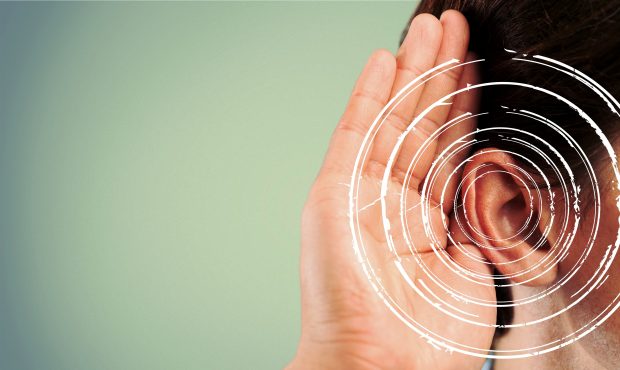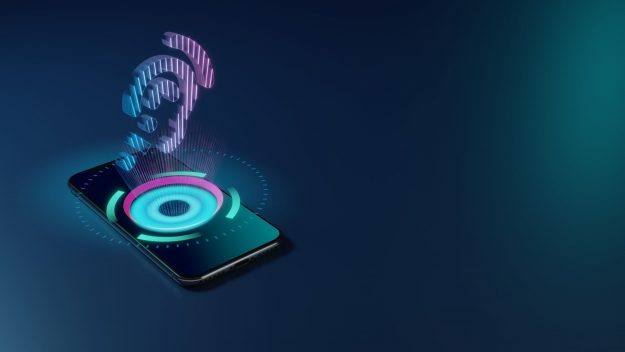The 5 Best Technologies for Hearing Loss and Hearing Impairment in 2021
Jul 14, 2021, 12:06 PM | Updated: Jul 20, 2021, 1:24 pm

Photo: Adobe Stock
 This article about technologies for hearing loss and hearing impairment is sponsored by CaptionCall.
This article about technologies for hearing loss and hearing impairment is sponsored by CaptionCall.
The World Health Organization says that over 5% of the world, or over 430 million people, struggle with disabling hearing loss. But living with hearing loss or hearing impairment doesn’t mean you have to stop your normal day-to-day lifestyle. That’s because there is some amazing assistive technology out there that can make your hearing loss or hearing impairment much easier. Here are the 5 best technologies for hearing loss and hearing impairment in 2021.
1. Assistive Listening Device Systems

Photo: Adobe Stock
If you have a hearing aid with a telecoil, you can take advantage of ADL systems with what’s called an induction loop. These feed the sound signal directly into your hearing aid or cochlear implant. These systems are available in many public places like grocery stores, movie theaters, and even places of worship. You might also be able to take advantage of FM radio frequencies or infrared technologies if your hearing aid does not include a telecoil. To find locations near you that offer these services you can check out the Assistive Listening Device Locator.
2. Live Captioning

Photo: Adobe Stock
Live captioning puts you in the unique position to have the world around you closed captioned. These assistive technologies come in many different forms but are primarily found in theaters and other public events. In fact, ADA Title III even requires movie theaters and cinemas to have access to closed captioning available. The captions not only show dialogue and narration, but they also show sounds, sound effects, speaker identification, music, and other auditory information that cannot be conveyed through speech. You can also use your phone for live captioning. More in a bit.
3. Captioned Telephones
Telephone systems like CaptionCall make it easier for people with hearing loss to communicate with family and friends. Plus it makes day-to-day activities easier. These handy Internet Protocol Captioned Telephone Service devices provide real-time closed captioning for phone conversations. They are exceptionally accurate and easy to read. All while still providing regular telephone capabilities. If you have hearing loss and need captions to use the telephone, it is available to you at no cost. To learn more about CaptionCall and to find out if you are eligible for the service check them out at captioncall.com.*
4. Video Conferencing Apps

Photo: Adobe Stock
It probably comes as no surprise that the world has changed because of COVID-19, but some good things have come out of it. Specifically, technologies that help people communicate in a digital sphere. Zoom and Microsoft Teams have jumped out as frontrunners of this technology. Both Zoom and Teams have surprisingly accurate closed captioning available. Even the chat feature can help bridge the gap. More info about Zoom accessibility features can be found HERE while Teams accessibility features can be found HERE.
5. Your Own Smartphone Can Help Your Hearing Loss and Hearing Impairment

Photo: Adobe Stock
The device you hold in your hand every day can really be your best friend when it comes to hearing loss and hearing impairment. That’s because there are hundreds of apps available for both Android devices and iOS devices. Here are some of the best apps for hearing loss and hearing impairment:
- You can have real-time closed captioning of the world around you with the Live Caption App,
- The Braci Sound Alert app lets you record the sounds around you. Then, it gives you visual and vibration alerts on your phone when it recognizes them. The app can do anything from letting you know when alarms go off, or when your doorbell rings.
- Your own phone also has accessibility features built right in too. No matter if you are on Android or on iOS, you’re likely to find something that will work for you.
Related articles:
- Healthier Grilling Tips
- QUIZ: Test Your CPAP Cleaning and Maintenance Knowledge
- Positive and Enlightening Quotes About Addiction







